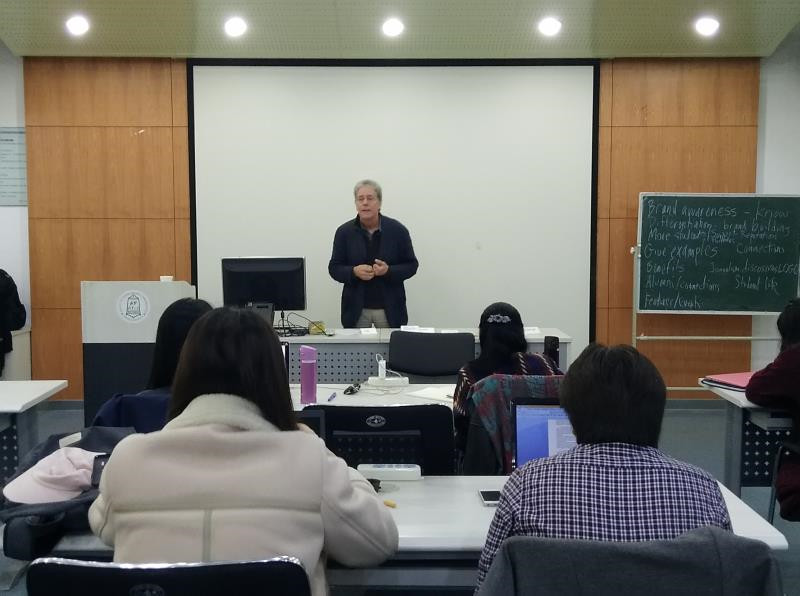
Despite spending most of his career as a foreign correspondent being "drawn to bad news and bad things," Bill Berkeley delivered an upbeat message at Tsinghua University on the value of journalists who go off the beaten path and ask tough questions of evil people.
Speaking inside Tsinghua’s School of Journalism and Communication to about three dozen graduate students on Oct. 23, Berkeley, who worked for years as a correspondent for The Atlantic in Africa before moving to the investigative and editorial desks at The New York Times, underlined the inspiration and fulfillment he found within constant hardship.
"I didn’t wake up one morning for 10 years doubting the value of the work I was doing," Berkeley said, citing stints in Liberia, Sudan, Zimbabwe, and Rwanda, where he covered the 1994 ethnic genocide.
A child of American privilege -- his father ran a bank and Berkeley attended Harvard -- he said he desperately wanted to distance himself from his upbringing and initially moved to Africa as an escape.
Berkeley quickly realized he was well-suited to life as an outsider and, after hassling magazine editors to publish his work and finding a sympathetic ear at The Atlantic, committed to a life abroad.
"I like being different," he said. "I like being a foreigner. I like being the only American in the room."
Berkeley emphasized that young journalists need to find what works for them -- whether that means reporting abroad or domestically, or writing for wire services or magazines. In his case, he was continually drawn to long-form reporting in unfamiliar places and immersed himself in conflict zones, where he was often the only journalist in sight.
Toting a glossy copy of The Atlantic to frontlines and broken landscapes across Africa to show his sources where their stories would end up, he typically found people eager to talk with him – after being mesmerized by the car ads in The Atlantic.
"Most of my subjects were flattered and grateful," Berkeley said. “‘Here's this rich white guy. He could be staying home watching TV. But instead he flies all the way out to this hellhole and finds me and wants to hear my story and tell the world about it. '"
Many of the countries Berkeley filed from were mired in ethnic conflict. Berkeley later wrote a book about the topic, “The Graves Are Not Yet Full,” and devoted himself to pinning blame on those responsible. His main response to the horrific violence he encountered was not depression, he said, but outright anger at those in positions of power who failed to make peace.
His biggest motivator throughout his reporting career was to "point the finger at evil" and hold those responsible accountable, even if that meant masking his personal sympathies in meetings with people such as Charles Taylor. The Liberian warlord was later sentenced by an international tribunal in The Hague to prison for war crimes.
"I’m here to shine a light in a dark corner,” Berkeley said.
Berkeley's career in conflict zones is not over yet: in December, he will board a flight to Myanmar, where the recent widespread persecution of Rohingya Muslims has drawn international condemnation.
"There are examples of evil, [there are] examples of atrocity, and there are examples of tyranny and criminality in all parts of the world throughout all of history,” Berkeley said.
Berkeley, who is an adjunct journalism professor at Columbia University in New York, visited Tsinghua as part of a lecture-and-teaching tour of China, sponsored by the U.S. State Department.(By Graham Dickie)

